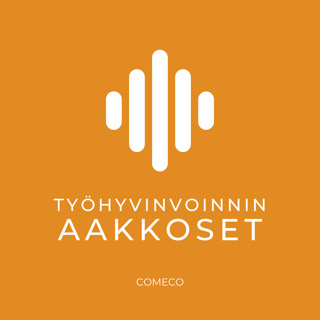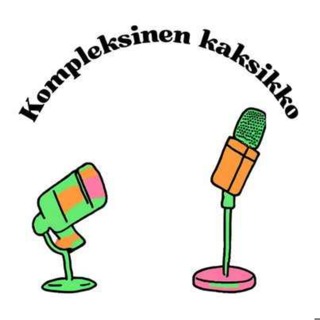
Discipline in Schools: Why Is Hitting Still an Option?
While most schools in the United States do not report using corporal punishment – the use of pain as punishment -- it still impacts tens of thousands of students annually, particularly in states where it remains legal. Jaime Peterson, a pediatrician and assistant professor at Oregon Health and Science University, along with the American Academy of Pediatrics, issued a call this fall to end such practices in school. “As pediatricians, we don't recommend corporal punishment. We know it's not an effective form of discipline. Spanking and hitting a child might help a behavior in the short term. They might be fearful and obedient,” she says. “But in the long term it has a lot of negative consequences. But if it's how you discipline your child at home, parents are often teachers, and school personnel, and school board members that that's a practice in their community at home that seems acceptable. It may be hard to change it.”It also disproportionately impacts certain demographics such as Black students and students with disabilities. With 17 states remaining where corporal punishment is still legal today, Peterson urges parents, educators and policymakers to mobilize and push for abolition of this practice. Calling this form of punishment ineffective, she urges parents and schools to adopt more supportive and positive disciplinary practices that work. “Saying that it's not allowed isn't going to change a school culture entirely. We don't know what other forms of discipline will come in,” she says. “I think really in the simplest forms when I talk with families, I remind them that our goal is no pain-- so that's corporal punishment-- no shame, and no blame when we discipline children. No pain, no shame, no blame.” In this episode of the EdCast, we discuss the prevalence and effects of corporal punishment in schools, and what it’s going to take to end it for good.
3 Huhti 202416min

Combatting Chronic Absenteeism through Family Engagement
Family engagement plays a pivotal role in combatting chronic absenteeism.The number of students who are chronically absent – missing 10% or more of the school year – has skyrocketed since the pandemic. Eyal Bergman, senior vice president at Learning Heroes, studied this issue and was surprised to discover how schools with robust family engagement had significantly lower rates of chronic absenteeism. “It shows that the strength of a school's family engagement is actually more predictive of a school's chronic absenteeism than their rates of poverty,” he says. But fostering strong home-school partnerships has been a challenge for many school districts. “What we find is that schools often, despite really good intentions, have not really been designed to promote really strong partnerships with families,” he says. “This is why families are often treated as spectators to the work of schools. This is why their cultural wisdom and their expertise about their children aren't necessarily woven into the fabric of schooling. It's why we see that schools often apply assimilationist practices.”Bergman emphasizes the need for trust-building between educators and families, personalized approaches to student learning, and systemic infrastructural support to enhance family engagement. In future work, Bergman will dig deeper into the data and try to gather more information about what certain school districts with strong family engagement did to keep chronic absenteeism down and a possible tool down the line to help schools with family engagement. In this episode, he explains the soaring numbers of chronic absenteeism while underscoring the transformative potential of prioritizing family engagement in ensuring student well-being and academic success.
27 Maalis 202426min

Getting to College: FAFSA Challenges for First Gen Students
For many first-generation college students, the dream of pursuing a college degree is often accompanied by financial uncertainty and adversities that keep it as just a dream. The faulty rollout of a new, more simplified Free Application for Federal Student Aid (FAFSA) form may only keep this student population from even trying.“The intent of simplifying it and making it 'Better FAFSA' was actually very much right-footed to really make sure that it can go to the intent of providing and expanding more access to young people who would be least likely to go to college, largely because they also think that they can't pay for it,” says Heather Wathington, the CEO of iMentor. “So what the challenge then is that something that was created to ameliorate a problem is stuck. So then you have young people that remain stuck. They aren't necessarily able to provide the financial information that they need, and they're discouraged about going.”Wathington acknowledges that the FAFSA changes were intended and may eventually help first generation college goers, but the delays, technical glitches, and math mistakes of the new FAFSA have only added a layer of adversity. “For the seniors, my heart aches for them because it's not feeling like they're going to college,” Wathington says. “And as we're trying to build a college going identity, particularly with young people who might be on the fence about whether they belong, whether they should go, whether they can pay for it, all the ‘whethers.’ We want to be able to make it feel possible, and this kind of serves to stymie them a bit.”How can we make college feel more accessible for these student populations? What is the role of mentors in not only getting students to apply to college but also matriculating to college? In this episode, we explore the hurdles faced by these individuals and explore strategies to help them overcome the barriers to accessing higher education.
20 Maalis 202421min

Why Math is the Greatest Equalizer in School
Math has a problem when it comes to equitable learning. The way math is taught and how students are tracked is part of the issue, according to Kentaro Iwasaki, a former math teacher who led new math standards in California and now works with school districts nationwide to overhaul their math programs. Tracking in math contributes to segregation, with Black and brown students often placed in lower-track classes compared to their white and Asian counterparts, he says.“When we go into classes or schools, almost every high school is tracked. With the doors closed and just looking through the window of a classroom, if you just look inside, you can pretty much tell what is a high track class and what's a low track class just based on the student demographics. And that's really unacceptable in our education system today, and particularly this is problematic in math.” The negative impact of tracking carries over into students' self-concept, classroom dynamics, and overall educational experiences. As a math teacher, Iwasaki dismantled an honors math program at Mission High School in San Francisco. This change resulted in increased AP enrollment and passing rates for all students, challenging the notion that tracking is necessary for academic success.“Math is being used as a vehicle to maintain segregation in our education system and that it's more comfortable for parents, particularly parents with social, cultural, political capital, to argue for segregation under the guise of mathematics and saying, ‘Well, my student is at this level, so therefore should be in this class,’ and really kept away from Black and brown students,” Iwasaki says. “No parent is going to outright say that, but in my work with parent communities and listening in and attending school board and school committee meetings, that very much is the underlying conversation and that is what district leaders, district systems, really need to confront.”In this episode, we discuss the concept of complex instruction, the value of de-tracking math, and how like-minded educators can forge a new identity for math in schools.
13 Maalis 202424min

Why Emotional Intelligence Matters for Educators
Janet Patti and Robin Stern joined forces decades ago when they recognized the crucial role of emotional intelligence for school leaders. How educators understand and manage emotions can positively impact the entire school community, contribute to better leadership, well-being, and resilience. The problem though is that for many education leaders developing emotional intelligence is low on the to do list. “People can burn out. People can be exhausted. And we hear that from leaders. It really takes a bite out of well-being when you're constantly in the state of emotion labor and you're not attending to that,” says Stern, a senior advisor for the Yale Center for Emotional Intelligence.High rates of stress and turnover in school leader positions only point to more need for emotional intelligence training in leadership development. In their book “Emotional Intelligence for School Leaders,” they push for social-emotional learning as a required skill for school leaders. They also share how educators can develop a conscience practice incorporating emotions, and how coaching and professional development can only help sustain educators in the field.“Many people just see it as, ’I'm not going to spend my money on me.’ That's number one. I'm not going to spend my money on adults. I'm going to spend it where we need it on kids. We understand that,” says Patti, a professor emeritus at Hunter College. “But if they only realize that by the investment in the principals and the assistant principals and even the superintendent who also is not faring well in terms of long lasting, they would have such a different outcome. Such a more productive environment. Kids would be able to achieve. Adults who would be happy going to work. It would be a different world.”In this episode, we discuss the need for training in emotional intelligence, sharing real-life examples of leaders who have successfully integrated these skills into their roles, and how it can change a school culture.
6 Maalis 202426min

Meddling Moms: The Movements Making Change in Public Schools
Over the past few years, a battle is taking place on many school grounds – one being driven by mothers that is inevitably shaping the future of schools. Laura Pappano – a journalist with decades covering education – couldn’t ignore the growing influence of these movements on education policies and challenging public schools. In her book, “School Moms,” she reports on the well-organized efforts of far-right movements, such as Moms for Liberty, in framing attacks on schools, influencing language and mobilizing local communities. As a result, these movements have flipped school boards, banned books, and changed curriculums.“There is a lot of organized money on the far right. They see schools as a political opportunity. I mean, one of the reasons that I have been reporting on this and wrote this book is because I have viewed public schools-- and I think many people share this view-- that this is a place that is nonpartisan,” she says. “I never knew what people's politics were in my school. We're here for all children. We're here to support their learning. We're here to support the teachers, the librarians. And what the far-right extremists have done is recognize that because schools gather everyone, they are a great platform for gaining power.” In this episode of the EdCast, we explore the historical parallels to these movements, the challenges faced by teachers, and the significance of public engagement in preserving democracy and inclusive education.
28 Helmi 202427min

Independent Play Key to Countering Children’s Declining Mental Health
In a world increasingly dominated by structured routines and adult supervision, renowned psychologist Peter Gray is not surprised that children’s mental health challenges and anxiety has been on the rise for decades.“We are so overprotecting children, because we are so always there to solve their problems for them, they're not developing the sense that they can solve their own problem,” Gray says, adding that clinical questionnaires conducted throughout the latter half of the 20th century showed a decline in locus of control for school-aged children as mental disorders rose. “How can you have an internal locus of control if you don't have experience controlling your own life? One thing that clinical psychologists have long known is that if you don't have a strong internal locus of control, that sets you up for anxiety and depression. No surprise. If I believe something can happen at any time, and there's nothing I can do about it, that's a very anxiety-provoking world. Things are frightening. I'm constantly anxious.”He cites many reasons for how we got to this place, including societal shifts and an education system focused on accountability. Gray, a professor emeritus at Boston College, advocates for the urgent need to reclaim the simple yet profound act of independent play, emphasizing its impact on children's happiness and long-term well-being. In this episode, we explore the critical role of independent play in fostering resilient, self-reliant, and mentally healthy young individuals.
21 Helmi 202427min

Navigating Literacy Challenges, Fostering a Love of Reading
How do we teach children to love reading amidst the ongoing debates surrounding literacy curriculums and instructional methods, and the emphasis on student outcomes? It's something that Pamela Mason, senior lecturer at the Harvard Graduate School of Education, thinks about a lot. She's been both a teacher and school leader, and has spent decades training teachers on literacy instruction. She says it takes many pieces coming together to create the perfect mix -- especially making it fun -- for successful reading instruction. As data continues to show dips in children's reading assessments nationwide, some states like Florida and Mississippi have been able to make progress and capture the attention of educators. "There's a whole systemic approach to literacy improvement. A lot of people looking at Mississippi say, 'Oh, it's because there's going to be third grade retention. Yes, that is part of their literacy plan, but there's so much more. There's in-school support. There's after school support. There's even books being given free to families who attend schools who are underperforming," she says. "So we have this merging of teachers, and community, and families, and administrators, all shining a light on the importance of literacy, and hopefully we're keeping some of the joy involved in that, as well."In this episode, we explore the intersection of effective literacy instruction, cultivating joy in reading, and empowering educators and families to ignite a passion for lifelong learning.
14 Helmi 202424min





















